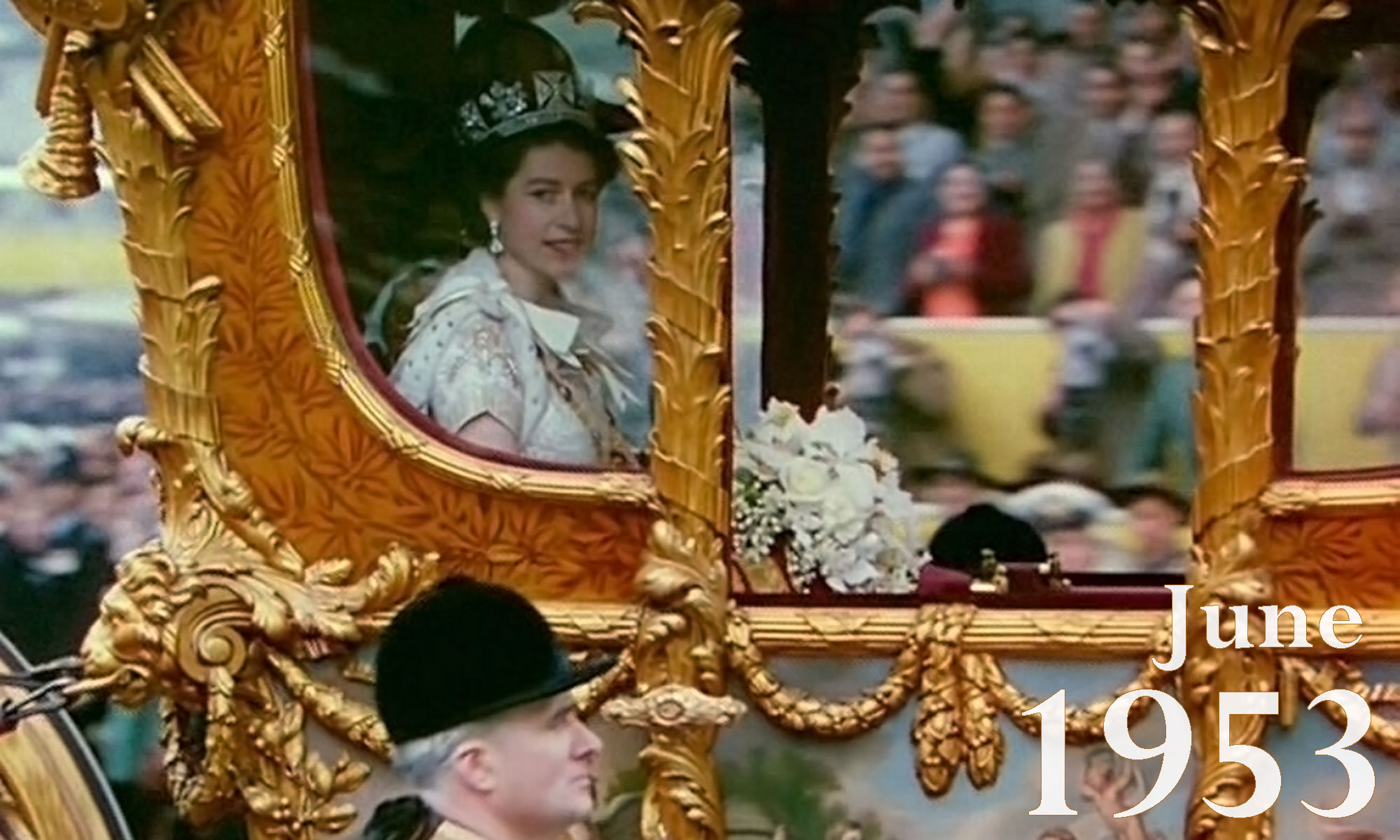| ◄ JUNE ► | ||||||
|---|---|---|---|---|---|---|
| ◄ 1953 ► | ||||||
| 1 | 2 | 3 | 4 | 5 | 6 | |
| 7 | 8 | 9 | 10 | 11 | 12 | 13 |
| 14 | 15 | 16 | 17 | 18 | 19 | 20 |
| 21 | 22 | 23 | 24 | 25 | 26 | 27 |
| 28 | 29 | 30 | ||||
| President: | Dwight D. Eisenhower (R) | |||
| Vice-President: | Richard M. Nixon (R) | |||
| House: | 211 (D) | 220 (R) | 1 (Other) | 3 (Vacant) |
| Southern states: | 100 (D) | 6 (R) | ||
| Senate: | 47 (D) | 48 (R) | 1 (Other) | |
| Southern states: | 22 (D) | |||
| GDP growth: | 6.8% | (Annual) | ||
| 0.8% | (Quarterly) | |||
| Inflation: | 1.1% | |||
| Unemployment: | 2.5% | |||
| US killed in action, | 547 | (This month) | ||
| Korean conflict: | 34,844 | (Since Jun 28, 1950) | ||
![]()
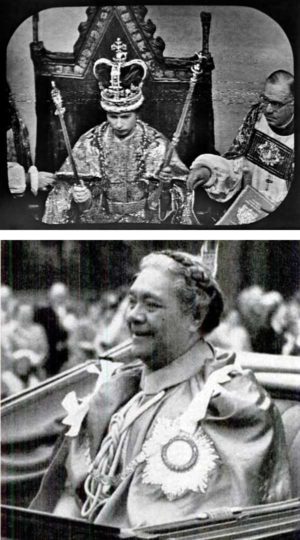 Jun 2: Queen Elizabeth II is formally crowned in an elaborate three-hour ceremony in Westminster Abbey. Two thousand journalists and five hundred photographers from ninety-two countries cover the spectacle. Among them is Washington Times-Herald photographer Jacqueline Bouvier, who will become Sen. John F. Kennedy’s fiancé later this month. The three hour service is the first coronation to be broadcast live on BBC television. Films of the coronation are flown by the Royal Air Force across the Atlantic to be delivered immediately to the CBC in Canada, which airs the coronation later in the afternoon. ABC and NBC air CBC’s telecast in the U.S., and CBS airs its own film about ten minutes later. The worldwide television audience is about 277 million. Back in London, sixteen thousand people line the coronation route in typically English rainy weather. Queen Salote of Tonga captures British hearts when she, alone among the horde of foreign dignitaries and potentates, refuses to raise the cover of her carriage during a downpour.
Jun 2: Queen Elizabeth II is formally crowned in an elaborate three-hour ceremony in Westminster Abbey. Two thousand journalists and five hundred photographers from ninety-two countries cover the spectacle. Among them is Washington Times-Herald photographer Jacqueline Bouvier, who will become Sen. John F. Kennedy’s fiancé later this month. The three hour service is the first coronation to be broadcast live on BBC television. Films of the coronation are flown by the Royal Air Force across the Atlantic to be delivered immediately to the CBC in Canada, which airs the coronation later in the afternoon. ABC and NBC air CBC’s telecast in the U.S., and CBS airs its own film about ten minutes later. The worldwide television audience is about 277 million. Back in London, sixteen thousand people line the coronation route in typically English rainy weather. Queen Salote of Tonga captures British hearts when she, alone among the horde of foreign dignitaries and potentates, refuses to raise the cover of her carriage during a downpour.
![]()
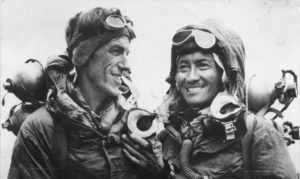 Jun 2: On Queen Elizabeth II’s coronation day, The Times of London reports that New Zealander Edmund Hillary and Tenzing Norgay, a famous Sherpa guide, have reach the peak of Mount Everest. They had scaled the peak the previous Friday after two other failed attempts at a final assault. The news had to be rushed by a runner from the expedition’s base camp to a radio post at Namche Bazar. Details of the expedition won’t be known for a few more weeks after the party returns from base camp, but the news is hailed in Britain as a Coronation Day gift.
Jun 2: On Queen Elizabeth II’s coronation day, The Times of London reports that New Zealander Edmund Hillary and Tenzing Norgay, a famous Sherpa guide, have reach the peak of Mount Everest. They had scaled the peak the previous Friday after two other failed attempts at a final assault. The news had to be rushed by a runner from the expedition’s base camp to a radio post at Namche Bazar. Details of the expedition won’t be known for a few more weeks after the party returns from base camp, but the news is hailed in Britain as a Coronation Day gift.
![]()
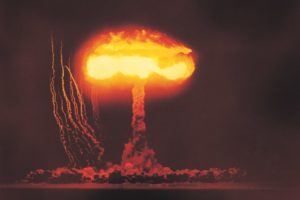 Jun 4: A massive 64-kiloton nuclear detonation takes place at the Nevada Test Site north of Las Vegas. The bomb is dropped from a B-36 from 40,000 feet, and explodes forty-two seconds later at about 2,000 feet over Yucca Flat. Acres of Joshua trees, cactus and brush burst into flame as far as five miles from ground zero. The flash is seen as far away as San Francisco (600 miles away) and Albuquerque (540 miles). The blast is heard as a low rumble in Pasadena, 250 miles away.
Jun 4: A massive 64-kiloton nuclear detonation takes place at the Nevada Test Site north of Las Vegas. The bomb is dropped from a B-36 from 40,000 feet, and explodes forty-two seconds later at about 2,000 feet over Yucca Flat. Acres of Joshua trees, cactus and brush burst into flame as far as five miles from ground zero. The flash is seen as far away as San Francisco (600 miles away) and Albuquerque (540 miles). The blast is heard as a low rumble in Pasadena, 250 miles away.
![]() Jun 5: The Mau Mau insurgency in the British colony of Kenya continues to grow even though government forces have killed 100 and captured 54 over the past week. The representatives of the British Colonial Service say that the Mau Mau movement is an agrarian rebellion fueled by white settlers’ expropriations of fertile Central and Rift Valley farmlands. The 1.25 million members of the Kikuyu tribe, from which the Mau Mau draws most of its strength, are restricted to ownership of 2,000 square miles, while 30,000 British settlers own 12,000 square miles. But any attempt by the Colonial Service to recognize the Mau Mau’s grievances draw furious condemnations from white settlers, who see such moves as both communist and seditious.
Jun 5: The Mau Mau insurgency in the British colony of Kenya continues to grow even though government forces have killed 100 and captured 54 over the past week. The representatives of the British Colonial Service say that the Mau Mau movement is an agrarian rebellion fueled by white settlers’ expropriations of fertile Central and Rift Valley farmlands. The 1.25 million members of the Kikuyu tribe, from which the Mau Mau draws most of its strength, are restricted to ownership of 2,000 square miles, while 30,000 British settlers own 12,000 square miles. But any attempt by the Colonial Service to recognize the Mau Mau’s grievances draw furious condemnations from white settlers, who see such moves as both communist and seditious.
![]() Jun 7: The United Nations and Communist armistice delegations in Panmunjom sign a prisoner-exchange accord. The agreement provides for prisoners who oppose repatriation to be handed over for up to four months to a supervisory committee composed of representatives from Czechoslovakia, India, Poland, Sweden and Switzerland, with Indian troops guarding the prisoners. The commission will assure that captives who say they don’t want to return to their home countries are acting on their own free will. This agreement is believed to be the last major hurdle to a final armistice agreement in Korea. South Korean President Syngman Rhee however rejects the move towards a truce and vows to fight on.
Jun 7: The United Nations and Communist armistice delegations in Panmunjom sign a prisoner-exchange accord. The agreement provides for prisoners who oppose repatriation to be handed over for up to four months to a supervisory committee composed of representatives from Czechoslovakia, India, Poland, Sweden and Switzerland, with Indian troops guarding the prisoners. The commission will assure that captives who say they don’t want to return to their home countries are acting on their own free will. This agreement is believed to be the last major hurdle to a final armistice agreement in Korea. South Korean President Syngman Rhee however rejects the move towards a truce and vows to fight on.
![]()
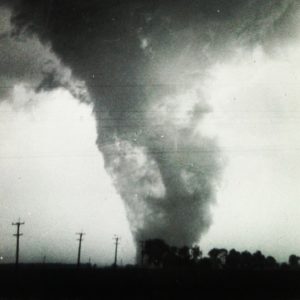 Jun 7-9: A three-day storm system spawns 46 known tornadoes in ten states from Colorado to Massachusetts, killing 246. One tornado on June 8 near Flint, Michigan, kills 116. Another in Worcester, Massachusetts, on June 9 kills 90. Several members of Congress demand to know whether the tornados, which occur outside of “tornado alley,” were caused by the June 4th nuclear test in Nevada. Meteorologists quickly dispel the idea.
Jun 7-9: A three-day storm system spawns 46 known tornadoes in ten states from Colorado to Massachusetts, killing 246. One tornado on June 8 near Flint, Michigan, kills 116. Another in Worcester, Massachusetts, on June 9 kills 90. Several members of Congress demand to know whether the tornados, which occur outside of “tornado alley,” were caused by the June 4th nuclear test in Nevada. Meteorologists quickly dispel the idea.
![]()
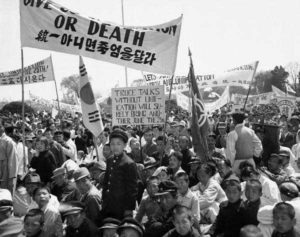 Jun 10: An estimated 100,000 demonstrators march in Seoul, protesting against the possible truce being negotiated in Panmunjom. South Korean President Syngman Rhee insists that he will not be a party to a truce agreement unless North Korea’s army is disbanded and all Chinese troops leave the peninsula.
Jun 10: An estimated 100,000 demonstrators march in Seoul, protesting against the possible truce being negotiated in Panmunjom. South Korean President Syngman Rhee insists that he will not be a party to a truce agreement unless North Korea’s army is disbanded and all Chinese troops leave the peninsula.
![]()
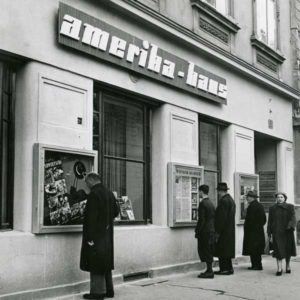 Jun 10: The U.S. State Department reveals that it has purged books by about twenty authors from the shelves of all Amerika Haus libraries in Germany. Among the books removed are some critical of the Nationalist Chinese. Others include authors that have been brought before Congressional committees and grilled about whether they were Communists. Authors whose books have been removed include Dashiell Hammett (The Thin Man and The Maltese Falcon), Theodore White, Langston Hughes, Owen Lattimore, Jean Paul Sartre, Howard Fast, and Paul B. Anderson, Europe Secretary of the YMCA. Until now, the forty Amerika Haus in Berlin and West Germany have been seen as beacons of American freedom of thought and ideas. Fifteen million people visited the libraries in the previous year.
Jun 10: The U.S. State Department reveals that it has purged books by about twenty authors from the shelves of all Amerika Haus libraries in Germany. Among the books removed are some critical of the Nationalist Chinese. Others include authors that have been brought before Congressional committees and grilled about whether they were Communists. Authors whose books have been removed include Dashiell Hammett (The Thin Man and The Maltese Falcon), Theodore White, Langston Hughes, Owen Lattimore, Jean Paul Sartre, Howard Fast, and Paul B. Anderson, Europe Secretary of the YMCA. Until now, the forty Amerika Haus in Berlin and West Germany have been seen as beacons of American freedom of thought and ideas. Fifteen million people visited the libraries in the previous year.
![]() Jun 10: East Germany’s Politburo announces a dramatic change in policy. For the past year, East Germany had embarked on a strident Sovietization program aimed at reshaping the country’s economy and society along Stalinist lines. The Central Committee imposed increased production quotas, suppressed churches and church youth groups, expelled teachers and students deemed politically unreliable, and prosecuted farmers who failed to meet quotas. The policies resulted in increased unrest and a large number of refugees fleeing to the West. Now that Stalin is gone, the East German government announces a significant easing of its policies. The teachers purge is cancelled, travel restrictions are eased, quotas are lightened, church suppression is ended, and refugees are invited back with no repercussions. The new policies are viewed with suspicion in the West, which has been united against the more regressive Communist policies. By reversing those policies, the U.S. and West Germany fear that the Soviet Bloc aims to open internal divisions in Western Europe and isolate the U.S.
Jun 10: East Germany’s Politburo announces a dramatic change in policy. For the past year, East Germany had embarked on a strident Sovietization program aimed at reshaping the country’s economy and society along Stalinist lines. The Central Committee imposed increased production quotas, suppressed churches and church youth groups, expelled teachers and students deemed politically unreliable, and prosecuted farmers who failed to meet quotas. The policies resulted in increased unrest and a large number of refugees fleeing to the West. Now that Stalin is gone, the East German government announces a significant easing of its policies. The teachers purge is cancelled, travel restrictions are eased, quotas are lightened, church suppression is ended, and refugees are invited back with no repercussions. The new policies are viewed with suspicion in the West, which has been united against the more regressive Communist policies. By reversing those policies, the U.S. and West Germany fear that the Soviet Bloc aims to open internal divisions in Western Europe and isolate the U.S.
![]()
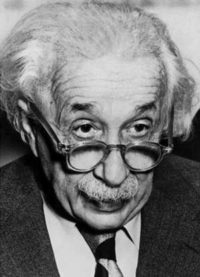 Jun 11: A letter from Dr. Albert Einstein is made public saying, “every intellectual that is called before a Congressional committee should refuse to testify, i.e., he must be prepared for jail and economic ruin … in the interest of the cultural welfare of his country.” The letter is addressed to a New York City English teacher who is facing dismissal because of his refusal to testify before the Senate Internal Security subcommittee headed by McCarthy ally Sen. William Jenner (R-IN). Einstein writes that “it is shameful for a blameless citizen to submit to such an inquisition… (which) violates the spirit of the Constitution.” McCarthy calls Einstein “an enemy of America.” The New York Times is also critical. “To employ the unnatural and illegal forces of civil disobedience … is in this case to attack one evil with another.” The teacher is among six who will lose their jobs a week later. About 100 New York City teachers have been fired or suspended since 1950.
Jun 11: A letter from Dr. Albert Einstein is made public saying, “every intellectual that is called before a Congressional committee should refuse to testify, i.e., he must be prepared for jail and economic ruin … in the interest of the cultural welfare of his country.” The letter is addressed to a New York City English teacher who is facing dismissal because of his refusal to testify before the Senate Internal Security subcommittee headed by McCarthy ally Sen. William Jenner (R-IN). Einstein writes that “it is shameful for a blameless citizen to submit to such an inquisition… (which) violates the spirit of the Constitution.” McCarthy calls Einstein “an enemy of America.” The New York Times is also critical. “To employ the unnatural and illegal forces of civil disobedience … is in this case to attack one evil with another.” The teacher is among six who will lose their jobs a week later. About 100 New York City teachers have been fired or suspended since 1950.
![]() Jun 12: East Germany’s new charm offensive continues. Currency exchange restrictions are eased. New laws are published to aid returning refugees and restore their properties. Ration cards are ordered restored for the middle class. Expelled school children receive telegrams inviting them to return to class. And church officials receive travel permits to attend functions in West Germany. The liberal Social Democrats in West Germany welcome what they see as an opening for reunification. The more conservative Christian Democrats fear the moves are nothing but a smoke screen. West German newspapers caution that the moves may be designed to weaken the Bonn government and scuttle the European Defense Community.
Jun 12: East Germany’s new charm offensive continues. Currency exchange restrictions are eased. New laws are published to aid returning refugees and restore their properties. Ration cards are ordered restored for the middle class. Expelled school children receive telegrams inviting them to return to class. And church officials receive travel permits to attend functions in West Germany. The liberal Social Democrats in West Germany welcome what they see as an opening for reunification. The more conservative Christian Democrats fear the moves are nothing but a smoke screen. West German newspapers caution that the moves may be designed to weaken the Bonn government and scuttle the European Defense Community.
![]()
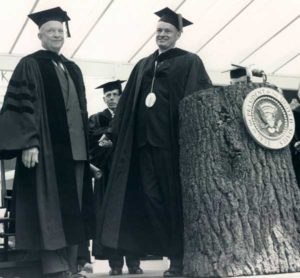 Jun 14: President Dwight D. Eisenhower denounces “book burners” in informal remarks at Dartmouth College’s graduation exercises. Speaking before an audience of 10,000, Eisenhower says, “Don’t join the book burners. Don’t think you are going to conceal faults by concealing evidence that they ever existed. Don’t be afraid to go in your library and read every book.” He says that to defeat communism, “we have got to fight it with something better. Not try to conceal the thinking of our own people. They are part of America. And even if they think ideas that are contrary to ours, their right to say them, their right to record them, and their right to have them at places where they are accessible to others, is unquestioned, or it’s not American.” The remarks are seen as directed at Sen. Joseph McCarthy (R-WI) who has been waging a campaign to remove certain books from State Department libraries overseas. The next day, Secretary of State John Foster Dulles will confirm that eleven books removed from libraries were actually burned.
Jun 14: President Dwight D. Eisenhower denounces “book burners” in informal remarks at Dartmouth College’s graduation exercises. Speaking before an audience of 10,000, Eisenhower says, “Don’t join the book burners. Don’t think you are going to conceal faults by concealing evidence that they ever existed. Don’t be afraid to go in your library and read every book.” He says that to defeat communism, “we have got to fight it with something better. Not try to conceal the thinking of our own people. They are part of America. And even if they think ideas that are contrary to ours, their right to say them, their right to record them, and their right to have them at places where they are accessible to others, is unquestioned, or it’s not American.” The remarks are seen as directed at Sen. Joseph McCarthy (R-WI) who has been waging a campaign to remove certain books from State Department libraries overseas. The next day, Secretary of State John Foster Dulles will confirm that eleven books removed from libraries were actually burned.
![]() Jun 15: In the heaviest fighting in Korea since 1951, thirty-thousand North Korean and Chinese troops launch a crushing attack along a thirty-mile section of the central and eastern fronts. The attack pushes the line back as much as two miles in some places. The attack is seen as an attempt by the North to gain more territory before an armistice is signed in Panmunjom.
Jun 15: In the heaviest fighting in Korea since 1951, thirty-thousand North Korean and Chinese troops launch a crushing attack along a thirty-mile section of the central and eastern fronts. The attack pushes the line back as much as two miles in some places. The attack is seen as an attempt by the North to gain more territory before an armistice is signed in Panmunjom.
![]()
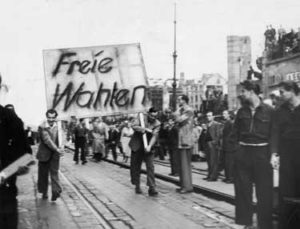 Jun 16: As many as ten thousand East German construction workers march through the streets of East Berlin shouting anti-Government slogans and calling for a general strike. East German police do nothing to interfere with the marchers. Instead, they reroute traffic to clear the march path. The marchers’ first demand — lowering their construction quotas — is met very quickly by the East German Politburo. The slogans then shift to more politically sensitive subjects: “We want free elections!” “We want butter, not a people’s army!” Recent East German moves intended to ease conditions and mollify restive East Germans seem to have only emboldened them instead. Marchers call for a general strike the next day. The East Berlin uprising is the first such anti-Government demonstration since the Communists took over East Germany.
Jun 16: As many as ten thousand East German construction workers march through the streets of East Berlin shouting anti-Government slogans and calling for a general strike. East German police do nothing to interfere with the marchers. Instead, they reroute traffic to clear the march path. The marchers’ first demand — lowering their construction quotas — is met very quickly by the East German Politburo. The slogans then shift to more politically sensitive subjects: “We want free elections!” “We want butter, not a people’s army!” Recent East German moves intended to ease conditions and mollify restive East Germans seem to have only emboldened them instead. Marchers call for a general strike the next day. The East Berlin uprising is the first such anti-Government demonstration since the Communists took over East Germany.
![]()
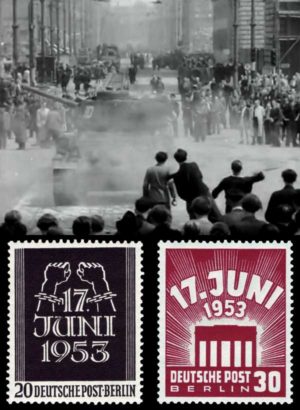 Jun 17: Protests in East Berlin swell to 50,000 and other protests break out elsewhere in East Germany. Protesters are now demanding the government’s resignation. East Germany responds by declaring martial law with Soviet tanks, troops and armored cars moving into East Berlin. The Soviets mobilize 16 divisions with 20,000 soldiers, with 8,000 East German military police, and open fire on demonstrators along the Unter den Linden. It will remain unclear how many people die, but the number of known victims is 55 in East Berlin and elsewhere in East Germany. West German officials estimate that 513 people are killed in the uprising, and another 106 people are executed under martial law. At least 5,000 are arrested; some say twice that. West Germany will commemorate June 17th as “German Unity Day” as a national holiday every year until German reunification in 1990.
Jun 17: Protests in East Berlin swell to 50,000 and other protests break out elsewhere in East Germany. Protesters are now demanding the government’s resignation. East Germany responds by declaring martial law with Soviet tanks, troops and armored cars moving into East Berlin. The Soviets mobilize 16 divisions with 20,000 soldiers, with 8,000 East German military police, and open fire on demonstrators along the Unter den Linden. It will remain unclear how many people die, but the number of known victims is 55 in East Berlin and elsewhere in East Germany. West German officials estimate that 513 people are killed in the uprising, and another 106 people are executed under martial law. At least 5,000 are arrested; some say twice that. West Germany will commemorate June 17th as “German Unity Day” as a national holiday every year until German reunification in 1990.
![]()
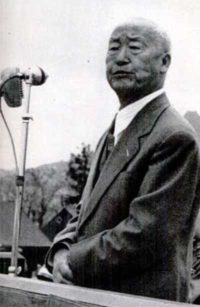 Jun 18: South Korean President Syngman Rhee defies the United Nations and unilaterally frees North Korean prisoners of war who say they don’t want to be repatriated to the North. By doing so, Rhee means to torpedo an armistice agreement that is expected to be completed at any day. Rhee opposes any agreement that stops short of Korea’s unification under his government. One component of the agreement on POWs specifies that all prisoners who don’t want to be repatriated back to their home countries to be turned over to a neutral five-country committee to ensure that their wishes are protected and not the result of coercion. Gen. Mark W. Clark, supreme commander of U.N. forces in Korea, cancels all R&R leaves for U.S. soldiers and orders American troops to take over the prison camps from South Korean guards. About 980 of some 26,000 freed North Korean prisoners are captured and returned to the camps. Another 9,000 North Korean prisoners opposed to repatriation still remain in custody.
Jun 18: South Korean President Syngman Rhee defies the United Nations and unilaterally frees North Korean prisoners of war who say they don’t want to be repatriated to the North. By doing so, Rhee means to torpedo an armistice agreement that is expected to be completed at any day. Rhee opposes any agreement that stops short of Korea’s unification under his government. One component of the agreement on POWs specifies that all prisoners who don’t want to be repatriated back to their home countries to be turned over to a neutral five-country committee to ensure that their wishes are protected and not the result of coercion. Gen. Mark W. Clark, supreme commander of U.N. forces in Korea, cancels all R&R leaves for U.S. soldiers and orders American troops to take over the prison camps from South Korean guards. About 980 of some 26,000 freed North Korean prisoners are captured and returned to the camps. Another 9,000 North Korean prisoners opposed to repatriation still remain in custody.
![]()
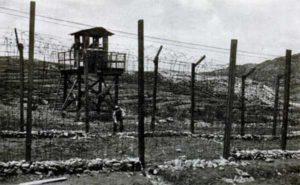 Jun 18: The U.S. government and United Nations allies furiously condemn South Korean President Synman Rhee’s unilateral actions aimed at sabotaging an imminent armistice to end the fighting in Korea. Eisenhower sends a sharply-worded message to Rhee via Premier Paik Too Chin, who happened to be in Washington for meetings with the President when the release occurred. An obviously shaken Paik leaves immediately for South Korea. U.N. General Secretary Dag Hammarskjold denounces Rhee’s actions and pointedly reminds South Korea that for the past three years it has been “the beneficiary of so much effort and sacrifice by members of the United Nations.”
Jun 18: The U.S. government and United Nations allies furiously condemn South Korean President Synman Rhee’s unilateral actions aimed at sabotaging an imminent armistice to end the fighting in Korea. Eisenhower sends a sharply-worded message to Rhee via Premier Paik Too Chin, who happened to be in Washington for meetings with the President when the release occurred. An obviously shaken Paik leaves immediately for South Korea. U.N. General Secretary Dag Hammarskjold denounces Rhee’s actions and pointedly reminds South Korea that for the past three years it has been “the beneficiary of so much effort and sacrifice by members of the United Nations.”
![]()
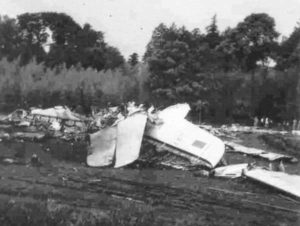 Jun 18: A U.S. Air Force C-124 Globemaster II crashes after takeoff from Tachikawa Airfield near Tokyo. The transport is carrying soldiers returning to Korea after completing their five-day R&R leave in Japan. All 129 people are killed in what is, so far, the worst air disaster in history. It is also the first crash with a death toll of over one hundred.
Jun 18: A U.S. Air Force C-124 Globemaster II crashes after takeoff from Tachikawa Airfield near Tokyo. The transport is carrying soldiers returning to Korea after completing their five-day R&R leave in Japan. All 129 people are killed in what is, so far, the worst air disaster in history. It is also the first crash with a death toll of over one hundred.
![]() Jun 18: Egyptian leader Maj. Gen. Mohammed Naguib declares Egypt a republic. Naguib is the leader of a military group that overthrew King Farouk the previous July. He is named the new republic’s first President and Premier.
Jun 18: Egyptian leader Maj. Gen. Mohammed Naguib declares Egypt a republic. Naguib is the leader of a military group that overthrew King Farouk the previous July. He is named the new republic’s first President and Premier.
![]()
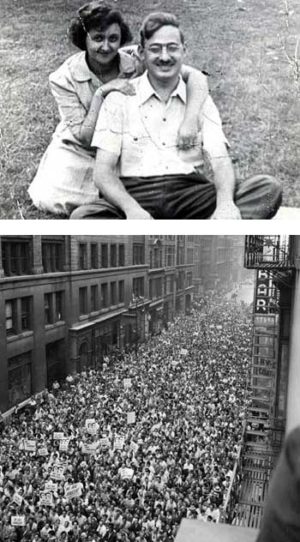 Jun 19: Julius and Ethel Rosenberg are executed at Sing Sing Prison for conspiracy to commit espionage. The execution takes place after the U.S. Supreme Court upholds the legality of the death sentence imposed on them. Appeals for clemency or commutation has already poured in from around the world. Vatican radio broadcast an editorial endorsing clemency, and Maurice Cardinal Feltin of Paris cabled Eisenhower, asking that their lives be spared. Leaders of Anglican, Jewish, Presbyterian, Methodist and Congregational churches in Australia joined the call. Five thousand people jam into the north end of Union Square, spilling onto East 17th Street, for a prayer meeting when the Rosenbergs are executed. There is widespread dispute over whether the Rosenbergs are guilty of spying. Four decades later, released Soviet-era files will reveal that Julius was indeed a spy.
Jun 19: Julius and Ethel Rosenberg are executed at Sing Sing Prison for conspiracy to commit espionage. The execution takes place after the U.S. Supreme Court upholds the legality of the death sentence imposed on them. Appeals for clemency or commutation has already poured in from around the world. Vatican radio broadcast an editorial endorsing clemency, and Maurice Cardinal Feltin of Paris cabled Eisenhower, asking that their lives be spared. Leaders of Anglican, Jewish, Presbyterian, Methodist and Congregational churches in Australia joined the call. Five thousand people jam into the north end of Union Square, spilling onto East 17th Street, for a prayer meeting when the Rosenbergs are executed. There is widespread dispute over whether the Rosenbergs are guilty of spying. Four decades later, released Soviet-era files will reveal that Julius was indeed a spy.
![]() Jun 19: Chinese radio charges that the Americans have “deliberately connived” with South Korean President Syngman Rhee in freeing the prisoners. The Communists abruptly call off a meeting at Panmunjom that was supposed to put the finishing touches on draft armistice agreement. Communists insist that the U.N. recapture all released prisoners.
Jun 19: Chinese radio charges that the Americans have “deliberately connived” with South Korean President Syngman Rhee in freeing the prisoners. The Communists abruptly call off a meeting at Panmunjom that was supposed to put the finishing touches on draft armistice agreement. Communists insist that the U.N. recapture all released prisoners.
![]() Jun 19: The U.S. State Department cancels a Fulbright Award granted to Dr. Naphiah Lewis, a Brooklyn College Greek and Latin professor, to study abroad in Italy. The cancellation comes after his wife, Helen E. Lewis, a former Brooklyn College teacher, invoked the Fifth Amendment during a Senate subcommittee hearing conducted by Sen. Joseph McCarthy (R-WI) when asked if she had ever been a Communist. Dr. Lewis had denied ever having been a Communist before the same subcommittee. McCarthy calls the award’s cancellation “an excellent idea.”
Jun 19: The U.S. State Department cancels a Fulbright Award granted to Dr. Naphiah Lewis, a Brooklyn College Greek and Latin professor, to study abroad in Italy. The cancellation comes after his wife, Helen E. Lewis, a former Brooklyn College teacher, invoked the Fifth Amendment during a Senate subcommittee hearing conducted by Sen. Joseph McCarthy (R-WI) when asked if she had ever been a Communist. Dr. Lewis had denied ever having been a Communist before the same subcommittee. McCarthy calls the award’s cancellation “an excellent idea.”
![]()
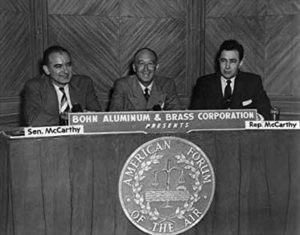 Jun 21: Sen. Joseph McCarthy (R-WI) says that anyone who invokes his constitutional rights in refusing to tell a Congressional committee whether he was ever a communist, “obviously is a communist.” He makes these comments during a debate on NBC’s “American Forum of the Air.” He also likens Dr. Albert Einstein, who recommended that scholars refuse to testify if called before his committee, to “Communist lawyers (who) appear before our committee day after day” with the same advice. “I may say that any American, I don’t care whether their name is Einstein or John Jones, who would advise American citizens to keep secret information that they have about espionage and sabotage — that man is just a disloyal American.”
Jun 21: Sen. Joseph McCarthy (R-WI) says that anyone who invokes his constitutional rights in refusing to tell a Congressional committee whether he was ever a communist, “obviously is a communist.” He makes these comments during a debate on NBC’s “American Forum of the Air.” He also likens Dr. Albert Einstein, who recommended that scholars refuse to testify if called before his committee, to “Communist lawyers (who) appear before our committee day after day” with the same advice. “I may say that any American, I don’t care whether their name is Einstein or John Jones, who would advise American citizens to keep secret information that they have about espionage and sabotage — that man is just a disloyal American.”
![]()
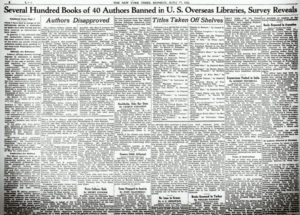 Jun 22: The New York Times reports that several hundred books by more than forty authors have been removed from U.S. libraries overseas on orders from at least six confidential State Department directives. The Times cites several instances where the directives were so vague and open-ended that they could conceivably proscribe hundreds of thousands of titles. A May 13 directive specifically called for the removal of those authors who invoked the Fifth Amendment before Sen. Joseph McCarthy’s (R-WI) subcommittee. Another directive listed sixteen authors for removal. “The nearest to a common denominator,” says the Times, “was … that most of those listed had refused at one time or another to tell Federal investigators, often the McCarthy subcommittee, if they were or had been Communists.”
Jun 22: The New York Times reports that several hundred books by more than forty authors have been removed from U.S. libraries overseas on orders from at least six confidential State Department directives. The Times cites several instances where the directives were so vague and open-ended that they could conceivably proscribe hundreds of thousands of titles. A May 13 directive specifically called for the removal of those authors who invoked the Fifth Amendment before Sen. Joseph McCarthy’s (R-WI) subcommittee. Another directive listed sixteen authors for removal. “The nearest to a common denominator,” says the Times, “was … that most of those listed had refused at one time or another to tell Federal investigators, often the McCarthy subcommittee, if they were or had been Communists.”
![]() Jun 22: British Prime Minister Winston Churchill reads a note to the House of Commons that was delivered to South Korean President Syngman Rhee, who had unilaterally released North Korean POWs in an attempt to sabotage the nearly completed truce talks in Panmunjom. Churchill’s note condemns Rhee’s “treacherous” actions which are “fraught with serious possibilities.” In answer to Rhee’s demand that the U.N. keep fighting until all of Korea is unified, Churchill says, amid loud cheers, “we have not committed ourselves in any way to go forward and conquer the whole area of Korea and place it under the authority of Mr. Syngman Rhee.”
Jun 22: British Prime Minister Winston Churchill reads a note to the House of Commons that was delivered to South Korean President Syngman Rhee, who had unilaterally released North Korean POWs in an attempt to sabotage the nearly completed truce talks in Panmunjom. Churchill’s note condemns Rhee’s “treacherous” actions which are “fraught with serious possibilities.” In answer to Rhee’s demand that the U.N. keep fighting until all of Korea is unified, Churchill says, amid loud cheers, “we have not committed ourselves in any way to go forward and conquer the whole area of Korea and place it under the authority of Mr. Syngman Rhee.”
![]() Jun 24: South Korean President Syngman Rhee escalates the crisis between South Korea and the United Nations when he makes public a formal notice delivered to Gen. Mark W. Clark that South Korea’s forces will withdraw from U.N. command if the armistice is signed.
Jun 24: South Korean President Syngman Rhee escalates the crisis between South Korea and the United Nations when he makes public a formal notice delivered to Gen. Mark W. Clark that South Korea’s forces will withdraw from U.N. command if the armistice is signed.
![]() Jun 26: In a letter to the president of the American Library Association, President Eisenhower reaffirms his call for freedom of expression delivered at Dartmouth two weeks earlier. Eisenhower denounces “zealots… with more wrath than wisdom.” He says, “Freedom cannot be censored into existence, and anyone who acts as if freedom’s defenses are to be found in suppression and suspicion and fear confess a doctrine that is alien to America.”
Jun 26: In a letter to the president of the American Library Association, President Eisenhower reaffirms his call for freedom of expression delivered at Dartmouth two weeks earlier. Eisenhower denounces “zealots… with more wrath than wisdom.” He says, “Freedom cannot be censored into existence, and anyone who acts as if freedom’s defenses are to be found in suppression and suspicion and fear confess a doctrine that is alien to America.”
![]()
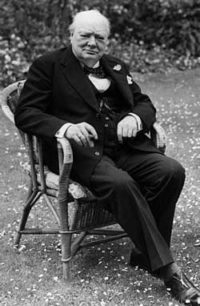 Jun 27: Downing Street suddenly announces that Prime Minister Winston Churchill, on advise from his doctors, has postponed a meeting with President Eisenhower and French Premier Joseph Laneul that had been scheduled for July 8 in Bermuda. One of Churchill’s physicians explain that the 78-year-old Prime Minister is simply “in need of a complete rest” for at least a month. An official statement says that Churchill went to his country home in Kent, where he enjoyed a rousing luncheon party with friends and spent the afternoon on the terrace dealing with Government business. In fact, what hasn’t been disclosed is that Churchill is seriously ill after having suffered a stroke during dinner on June 23. He held a Cabinet meeting the next day, but his condition continued to worsen. Now he is paralyzed on his left size, unable to speak, and it is feared that he might not survive the weekend.
Jun 27: Downing Street suddenly announces that Prime Minister Winston Churchill, on advise from his doctors, has postponed a meeting with President Eisenhower and French Premier Joseph Laneul that had been scheduled for July 8 in Bermuda. One of Churchill’s physicians explain that the 78-year-old Prime Minister is simply “in need of a complete rest” for at least a month. An official statement says that Churchill went to his country home in Kent, where he enjoyed a rousing luncheon party with friends and spent the afternoon on the terrace dealing with Government business. In fact, what hasn’t been disclosed is that Churchill is seriously ill after having suffered a stroke during dinner on June 23. He held a Cabinet meeting the next day, but his condition continued to worsen. Now he is paralyzed on his left size, unable to speak, and it is feared that he might not survive the weekend.
![]() Jun 29: President Eisenhower and Iranian Prime Minister Mohammed Mossadegh exchange letters in which Eisenhower informs Mossadegh that the U.S. will not grant any additional aid to Iran while Iran’s oil dispute with Britain remains unsettled. The dispute centers on Iran’s nationalization of the British-owned Anglo-Iranian Oil Company’s properties in 1951. Eisenhower says such aid wouldn’t be fair to American taxpayers as long as Iran has the means to raise money from its oil if it settles its dispute with Britain. This comes as a severe blow to Mossadegh’s political standing, as he has given the impression domestically that he has America’s backing. Eisenhower confirms however that technical assistance and military aid will continue at past levels.
Jun 29: President Eisenhower and Iranian Prime Minister Mohammed Mossadegh exchange letters in which Eisenhower informs Mossadegh that the U.S. will not grant any additional aid to Iran while Iran’s oil dispute with Britain remains unsettled. The dispute centers on Iran’s nationalization of the British-owned Anglo-Iranian Oil Company’s properties in 1951. Eisenhower says such aid wouldn’t be fair to American taxpayers as long as Iran has the means to raise money from its oil if it settles its dispute with Britain. This comes as a severe blow to Mossadegh’s political standing, as he has given the impression domestically that he has America’s backing. Eisenhower confirms however that technical assistance and military aid will continue at past levels.
![]() Jun 30: South Korean President Syngman Rhee demands that the United States enter into an complete, iron-clad military alliance with South Korea as his price for agreeing to a truce. Rhee also insists that this military alliance will commit the U.S. to join him in an all-out war if the Communists do not move toward reunification within ninety days of a cease-fire. The U.S. makes clear that it will never agree to such an arrangement.
Jun 30: South Korean President Syngman Rhee demands that the United States enter into an complete, iron-clad military alliance with South Korea as his price for agreeing to a truce. Rhee also insists that this military alliance will commit the U.S. to join him in an all-out war if the Communists do not move toward reunification within ninety days of a cease-fire. The U.S. makes clear that it will never agree to such an arrangement.
![]()
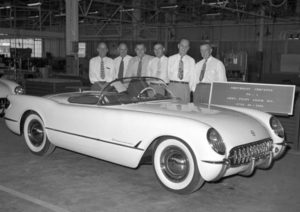 Jun 30: The first Chevrolet Corvette rolls off the assembly line in Flint, Michigan. Excited sports car enthusiasts finally have the option of buying an American version of the European roadsters they’ve been craving. Priced at $3,500 ($33,000 today), the Corvette’s beautiful styling and firm suspension earn rave revues from the automotive press. But problems with the fiberglass body’s fit and finish will cause water leaks in rainstorms. And its subpar performance — it takes 12 seconds to go from zero to 60 mph — just doesn’t measure up to expectations. Sales are disappointing, and most of its shortcomings will be addressed by the 1956 model year.
Jun 30: The first Chevrolet Corvette rolls off the assembly line in Flint, Michigan. Excited sports car enthusiasts finally have the option of buying an American version of the European roadsters they’ve been craving. Priced at $3,500 ($33,000 today), the Corvette’s beautiful styling and firm suspension earn rave revues from the automotive press. But problems with the fiberglass body’s fit and finish will cause water leaks in rainstorms. And its subpar performance — it takes 12 seconds to go from zero to 60 mph — just doesn’t measure up to expectations. Sales are disappointing, and most of its shortcomings will be addressed by the 1956 model year.
![[Emphasis Mine]](http://jimburroway.com/wp-content/uploads/2018/01/GatewaysClubChelsea1952.jpg)
